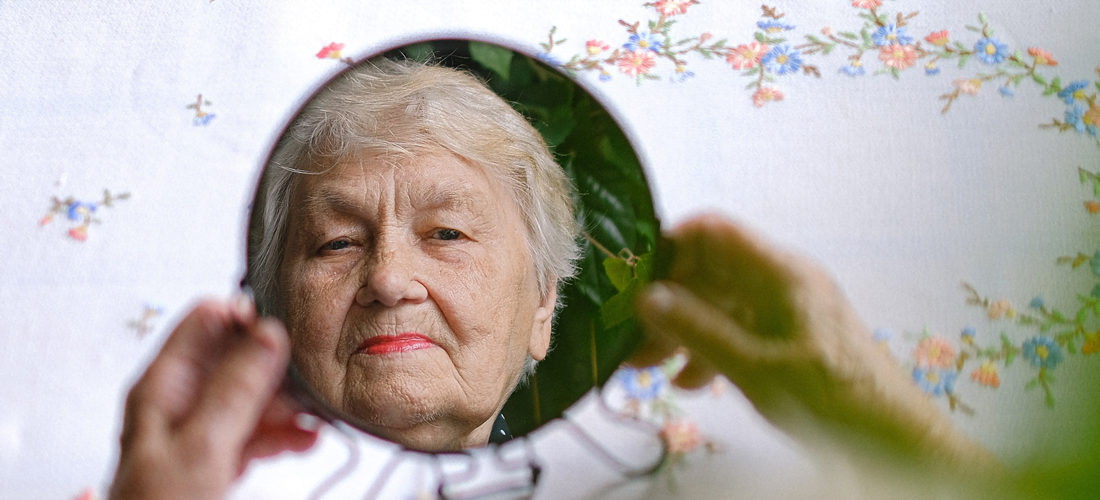In the journey of life, aging is a common denominator shared by all, and aging gracefully can be a profound experience. While this process often conjures images of declining physical health or the fear of loneliness, it is essential to shift our perspective and embrace the solitude that can accompany it. Solitude, often misunderstood as isolation, can instead be a gateway to self-discovery, tranquility, and a deeper understanding of one’s self. This blog post aims to explore the concept of aging gracefully, with a special emphasis on the appreciation of solitude, casting a new light on what it means to grow older.
Strategies for Aging Gracefully in Solitude
Aging gracefully in solitude can be a rewarding and fulfilling experience when you adopt certain strategies to navigate this stage of life. Here are some key strategies for embracing solitude and aging with grace:
1. Self-care and Well-being
- Physical Health: Maintain your physical health by staying active, eating a balanced diet, and getting regular check-ups. Engage in exercises suitable for your fitness level to boost energy and mobility.
- Mental and Emotional Health: Prioritize your mental and emotional well-being. Practice mindfulness, meditation, or relaxation techniques to manage stress and anxiety. Seek professional help if needed.
- Daily Routine: Establish a daily routine that provides structure and purpose. This can include activities like reading, gardening, or simply going for a walk.
2. Building a Support Network
- Family and Friends: Stay connected with loved ones. Regular communication, even if it’s virtual, can combat feelings of loneliness. Share your thoughts, experiences, and concerns with family and friends.
- Community Involvement: Engage in your local community or neighborhood. Participate in social events, volunteering, or local clubs to build new connections and friendships.
3. Pursuing Lifelong Learning and Creativity
- Exploring New Interests: Aging provides an opportunity to explore hobbies and interests you may not have had time for earlier in life. Whether it’s painting, writing, cooking, or learning a musical instrument, engaging in creative pursuits can be immensely satisfying.
- Staying Intellectually Engaged: Challenge your mind with intellectual activities like reading, puzzles, or taking online courses. Continuously learning keeps your brain active and sharp.
4. Embracing Technology for Connectivity
- Virtual Connections: Embrace technology to connect with loved ones virtually. Video calls, social media, and messaging apps can help you stay in touch and bridge the physical gap.
- Online Communities: Explore online communities, forums, or social networks related to your interests or passions. Engaging in discussions and sharing experiences can foster a sense of belonging.
5. Maintaining a Healthy Lifestyle
- Balanced Diet: Consume a well-balanced diet rich in nutrients and antioxidants. Proper nutrition supports physical and mental health.
- Adequate Sleep: Ensure you get enough restorative sleep to help your body recover and maintain overall well-being.
- Avoid Harmful Habits: Refrain from or limit habits like smoking and excessive alcohol consumption, as they can negatively impact your health.
6. Financial Planning
- Carefully manage your finances and plan for the long term. This includes budgeting, saving for retirement, and considering healthcare costs. Financial security can reduce stress and provide peace of mind.
7. Spiritual and Inner Growth
- Explore your spirituality and inner self. Meditation, prayer, or engaging in spiritual practices can provide a sense of purpose and peace.
- Reflect on life experiences and lessons learned, embracing the wisdom that comes with age.
8. Adaptation and Acceptance
- Embrace change and adapt to the evolving circumstances of aging. Accept that certain limitations may arise and find ways to work around them while maintaining your independence.
9. Seeking Professional Help When Necessary
- Don’t hesitate to seek professional assistance for physical, mental, or emotional concerns. Consulting with healthcare providers, therapists, or counselors can be crucial for well-being.
Aging gracefully in solitude involves a combination of self-care, staying connected, pursuing personal interests, and maintaining a positive outlook on life. Each individual’s journey is unique, so adapt these strategies to your own circumstances and preferences, allowing you to enjoy a fulfilling and purposeful life as you age gracefully in solitude.
The Beauty of Solitude
Solitude, often perceived as a state of loneliness, in reality, bestows numerous benefits, especially in the context of aging gracefully. It allows time for reflection, introspection, and self-discovery, integral aspects that contribute to the enrichment of one’s later years. Embracing solitude fosters a heightened sense of self-awareness and self-acceptance, essential components for navigating the journey of aging.
The tranquility and peace offered by solitude facilitate a deeper understanding of personal desires, aspirations, and identity, enabling individuals to age with dignity and contentment. Moreover, solitude can enhance mental resilience, a critical factor in handling the challenges associated with aging. Overall, solitude can indeed play a pivotal role in promoting a harmonious and graceful aging experience.
Challenges of Aging in Solitude
As we age, the feeling of solitude can sometimes creep in, often due to changes in our social circle, retirement, or loss of a loved one. However, it’s important to understand that solitude need not equate to loneliness. Embracing solitude can be a powerful tool for self-reflection and growth. Moreover, taking time for oneself can provide an excellent opportunity to engage in activities that we enjoy, such as reading, gardening, or even learning a new skill.
Aging gracefully is about finding balance, self-contentment, and fostering a positive mindset. If feelings of isolation persist, seeking companionship through social clubs, volunteer groups, or even adopting a pet can be beneficial.
Overcoming societal pressures and stereotypes related to aging involves cultivating an attitude of acceptance and grace. It’s about redefining solitude, not as an aspect of loneliness but as a time of introspection and self-discovery.
Aging gracefully is about embracing the wisdom and maturity we gain with years, and using these as tools to navigate through life’s next chapters. It’s about dispelling the myth that productivity and relevance decrease with age and instead, understanding that our worth is not determined by our physical age but our ongoing personal growth and contribution to society.
Navigating health and caregiving concerns becomes increasingly significant as we age, and solitude can play a remarkable role in this journey. Embracing solitude does not necessarily mean feeling lonely; rather, it provides a space for introspection, self-awareness, and fostering a deeper understanding of our health needs. Aging gracefully intertwines with acknowledging our physical and mental changes, and taking proactive steps to maintain our health.
Embracing Solitude as a Path to Wisdom
As we age, embracing periods of solitude can lead to a graceful aging process. This is because solitude often serves as the crucible for wisdom, allowing us to sift through the experiences of our lives, discerning valuable lessons and insights. In the quietness of solitude, we can reflect on our experiences, our triumphs, our failures, and the subtle nuances of our daily interactions. We gradually cultivate a nuanced understanding of life, its many challenges, and the most effective ways to navigate them. This wisdom, born of solitude and introspection, is a key component of aging gracefully, allowing us to grow not only older but also wiser.
Storytelling holds a significant place in human life and culture, serving as a bridge between generations and a means to pass on wisdom. It is through the narratives of those who have walked before us that we learn life’s most profound lessons. Particularly for those who are aging gracefully, the act of recounting experiences can be a form of reminiscence therapy, enabling them to relive past moments in solitude or in the company of others.
Such stories often contain nuggets of wisdom that are invaluable for younger generations. They offer insights into life’s complexities, demonstrating resilience, endurance, and the inevitability of change. Therefore, storytelling should not just be seen as a form of entertainment, but as a vital tool for the preservation and dissemination of wisdom.
Closing Thoughts
Aging gracefully is not about striving to look like a 20-year-old, but rather embracing the beauty of maturity and the wisdom it imparts. Incorporating solitude into this process allows for self-reflection, inner growth, and a deeper understanding of oneself. These quiet moments of introspection can indeed lead to a profound sense of satisfaction and fulfillment.
It’s in these nurturing periods of solitude that we learn to appreciate the journey of aging, viewing it as a testament to a life well-lived rather than a source of apprehension. So, let’s celebrate the grace of aging, enjoying the solitude that offers us the space to truly appreciate our journey, our resilience, and the depth of our own life experience.










